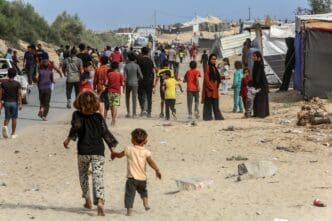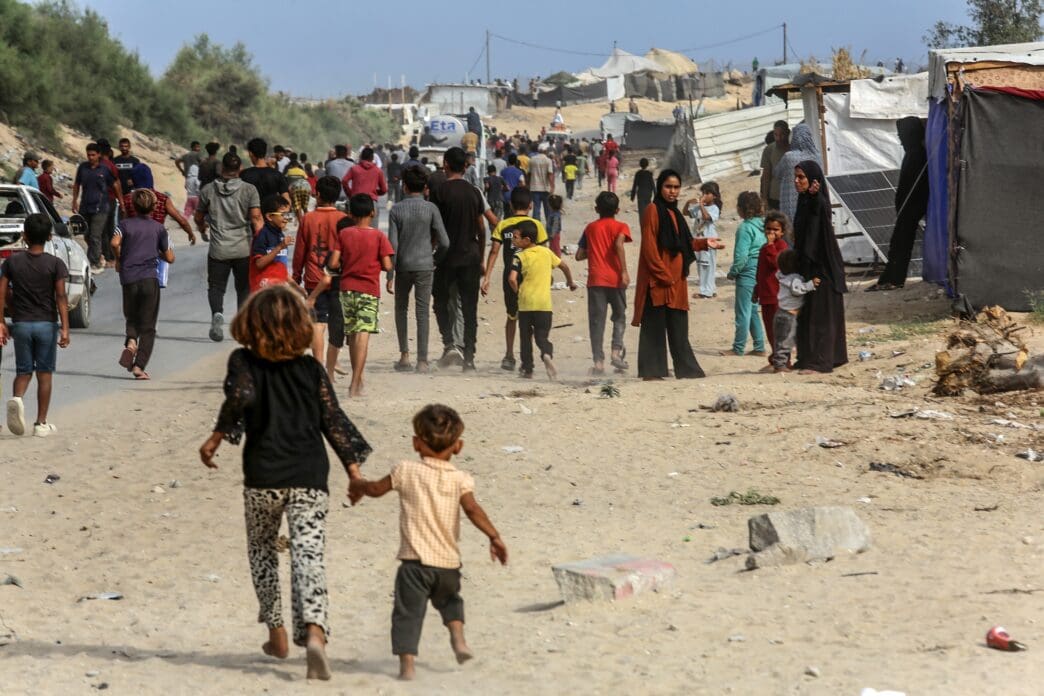Executive Summary
- Slovenia’s Foreign Minister, Tanja Fajon, is urging the European Union to demonstrate “political courage” and implement concrete measures, beyond mere Palestinian statehood recognition, to compel Israel to halt the Gaza conflict.
- Proposed actions include sanctioning “radical or extreme ministers” of the Israeli government and restricting trade in weapons or products from settlements.
- Fajon notes a “growing awareness” within Europe for more robust measures and hopes the severe humanitarian crisis in Gaza will drive intensified EU and international efforts despite challenges in reaching consensus.
The Story So Far
- Slovenia, a non-permanent member of the UN Security Council, has already recognized Palestinian statehood and has been a leading European advocate for this cause. Despite this, its Foreign Minister believes recognition alone is insufficient and is now pressing the European Union for more concrete measures, such as sanctions against Israeli government officials or restrictions on trade related to weapons and settlement products, amidst a growing awareness within Europe for more robust actions against Israel.
Why This Matters
- Slovenia’s push for the European Union to implement concrete measures against Israel, including sanctions on officials and trade restrictions, signifies a growing internal demand for a more assertive and unified EU foreign policy on the Gaza conflict. Should the EU overcome challenges to consensus and adopt such actions, it could significantly escalate international pressure on Israel, potentially impacting its diplomatic and economic relations and altering the dynamics of the conflict in an effort to compel a halt to hostilities and address the humanitarian crisis.
Who Thinks What?
- Slovenia’s Foreign Minister Tanja Fajon argues that recognizing Palestinian statehood is insufficient, urging the EU to demonstrate “political courage” by implementing concrete measures such as sanctioning Israeli government officials and restricting trade related to weapons or settlement products to compel Israel to halt the conflict.
- There is a “growing awareness” among some European officials and a group of countries regarding the need for more robust measures against Israel, with increasing calls for sanctions and some nations already exploring similar bilateral actions.
- Reaching a full consensus within the EU for collective actions like sanctions against Israel is widely considered challenging, suggesting internal divisions or hesitations among member states regarding such strong measures.
Slovenia’s Foreign Minister, Tanja Fajon, is pressing the European Union to demonstrate “political courage” and implement concrete measures to compel Israel to halt the conflict in Gaza, asserting that merely recognizing Palestinian statehood is insufficient. Speaking to The National in New York on the sidelines of the UN General Assembly, Fajon urged collective EU action, highlighting proposals such as sanctioning Israeli government officials and restricting trade related to weapons or settlement products.
Slovenia’s Call for Action
Last year, Slovenia, a non-permanent member of the UN Security Council, recognized Palestinian statehood and encouraged other EU countries to follow suit. Fajon, the country’s first female foreign minister, has been a leading European voice advocating for this recognition, a push that has recently seen countries like France and the UK also recognize Palestine.
However, Fajon emphasized that this step is “not enough.” She is now on a mission to push EU countries to take more direct actions to pressure Israel. “I wish to see that also on the level of the European Union you find this political courage to act together,” she stated.
Proposed Measures and Growing Awareness
Fajon noted a “growing awareness” within Europe regarding the need for more robust measures. She mentioned proposals such as sanctioning “radical or extreme ministers of the Israeli government,” or increasing scrutiny on “trade in weapons or with products from the settlements.”
Slovenia introduced some of these measures bilaterally this summer, and Fajon indicated that other countries are exploring similar paths. She expressed anticipation for common European actions, noting that a group of countries is already collaborating on a bilateral level.
Adherence to International Law
The Foreign Minister stressed the urgency of respecting international humanitarian law and the UN Charter. She called for an end to the “continuation of illegal settlements and annexation in the West Bank,” and for allowing unimpeded humanitarian assistance into Gaza.
Fajon articulated a strong condemnation of the situation, stating, “We see genocidal acts… So it is really a responsibility of everyone sitting in the United Nations.” She underscored that every country must act, and unity in this message is crucial.
EU Consensus and Hope
Fajon’s comments come amidst increasing calls from various European officials for sanctions against Israel and its government, which includes elements reportedly rejecting a two-state solution and a ceasefire in Gaza. While sanctions are being discussed as a collective effort, reaching a consensus within the EU is widely considered challenging.
Despite these difficulties, Fajon expressed hope, driven by the humanitarian crisis in Gaza. She highlighted the “military action in Gaza, forced displacement of people, people fleeing because they are losing their homes,” and the urgent need for “decency, for humanity and dignity.” Fajon anticipates that the European Union and the international community will intensify their efforts.








